

2004 by I. Howard Marshall
Published by Baker Academic
a division of Baker Publishing Group
P.O. Box 6287, Grand Rapids, MI 49516-6287
www.bakeracademic.com
and
Paternoster
an imprint of Authentic Media
9 Holdom Avenue, Milton Keynes, Bucks., MK1 1QR UK
www.authenticmedia.co.uk
Ebook edition created 2012
All rights reserved. No part of this publication may be reproduced, stored in a retrieval system, or transmitted in any form or by any meansfor example, electronic, photocopy, recordingwithout the prior written permission of the publisher. The only exception is brief quotations in printed reviews.
ISBN 978-1-4412-0663-3
Library of Congress Cataloging-in-Publication Data is on file at the Library of Congress, Washington, DC.
The internet addresses, email addresses, and phone numbers in this book are accurate at the time of publication. They are provided as a resource. Baker Publishing Group does not endorse them or vouch for their content or permanence.
The disciplined study of the Bible in its original languages and historical context is an enterprise in which evangelicals have taken a not insignificant part. Here one of their most distinguished practitioners questions how researching the historical meaning can elucidate the Word of God for us today and generates an inner-evangelical debate about identifying the biblical principles on the basis of which this leap might be performed. It is the emphasis on biblical principles that reveals the evangelical slant given to this hermeneutical discussion. Yet this is a book which proves that, whatever our Christian confession, we can all benefit from overhearing one anothers conversations.
Frances Young, University of Birmingham
The apostle Paul told us not to go beyond the things that are written. So what should we make of an evangelical biblical scholar who goes beyond the Bible? Marshall, the scholar in question, wants to build a bridge from the Bible to its present-day application and, more especially, to make the bridge itself biblical. Does he succeed? His respondents, Kevin J. Vanhoozer and Stanley E. Porter, inspect the bridge for weak spots. Is it biblical, for example, to dilute or dump one biblical message for the sake of another because the first onesay, divine judgment as expressed in horrific imagesmay seem disagreeable with more loving parts of the Bible and does in fact violate popularly accepted moral standards in our civilized world? Do these standards incline us to set one part of the Bible against another and prejudice one part over the other? Is it even possible to avoid such prejudicial treatments? Read, watch these friends spar with each other, and decide for yourselves. The questions are fundamental, and our answers to them will to a significant extent determine the future of evangelical Christianity.
Robert H. Gundry, Westmont College
Acadia Studies in Bible and Theology
Craig A. Evans and Lee Martin McDonald, General Editors
T he last two decades have witnessed dramatic developments in biblical and theological study. Full-time academics can scarcely keep up with fresh discoveries, recently published primary texts, ongoing archaeological work, new exegetical proposals, experiments in methods and hermeneutics, and innovative theological syntheses. For students and nonspecialists these developments are confusing and daunting. What has been needed is a series of succinct studies that assess these issues and present their findings in a way that students, pastors, laity, and nonspecialists will find accessible and rewarding. Acadia Studies in Bible and Theology, sponsored by Acadia Divinity College in Wolfville, Nova Scotia, and in conjunction with the colleges Hayward Lectureship, constitutes such a series.
The Hayward Lectureship has brought to Acadia many distinguished scholars of Bible and theology, such as Sir Robin Barbour, John Bright, Leander Keck, Helmut Koester, Richard Longenecker, Martin Marty, Jaroslav Pelikan, Ian Rennie, James Sanders, and Eduard Schweizer. Acadia Studies in Bible and Theology reflect this rich heritage.
These studies are designed to guide readers through the ever more complicated maze of critical, interpretative, and theological discussion taking place today. But these studies are not introductory in nature; nor are they mere surveys. Written by leading authorities in the field, Acadia Studies in Bible and Theology offer critical assessments of the major issues that the church faces in the twenty-first century. Readers will gain the requisite orientation and fresh understanding of the important issues that will enable them to take part meaningfully in discussion and debate.
Contents
Preface
A t a time when academic books are getting longer and longer and people have less and less time to read them, there may be a welcome for this comparatively short one that aims to set out an agenda for evangelical biblical scholarship.
The genesis of it lay in an invitation to me to give the annual lecture of the Institute for Biblical Research (IBR) at its annual meeting in Toronto in November 2002, and here I wish to express my thanks to Robert Gundry and the program committee for giving me that opportunity. One of the questions that was in my mind at the time of receiving the invitation was the impasse that has developed between scholars who come to different conclusions regarding issues such as the place of women in marriage and in ministry on the basis of different understandings of how the scriptural teaching, which they unite in accepting as authoritative, is to function today. Could there be any way of trying to understand what goes on in biblical interpretation and to see if there can be a principled way of moving from the ancient, authoritative text to its modern application? Greatly daring, I accepted the invitation and suggested the topic without being at all clear as to how it might be developed.
Then two further things happened. One was an invitation to write a chapter for a book to be entitled The Futures of Evangelicalism on evangelicalism and biblical interpretation, setting out where we are at present and what ought to be our agenda for the future. The other was the invitation to deliver the series of three Hayward Lectures at Acadia Divinity College that came from Lee McDonald and Craig Evans, and again I wish to express my thanks to them and their colleagues and students both for the invitation and for the gracious reception and generous hospitality that I enjoyed in Wolfville. It seemed to me that the material that necessarily had to be given in a highly condensed form in the IBR lecture could helpfully be expanded for the Hayward Lectures, and also that some of the chapter for The Futures of Evangelicalism could be reproduced in this context as a lead-in to the topic, since the thesis of that chapter is quite simply that while we must continue to work at other aspects of biblical interpretation, the problem of how we are to get from the Bible to the church and the world today is the central task to which we must devote ourselves in the immediate future.
Craig Evans made the helpful suggestion that it would be good to have some kind of response to the lectures and took advantage of a visit by Stanley Porter to Acadia to get his insights on the theme. The only snag was that Stans visit could take place only before the lecture series, and therefore the audience had the unusualpossibly uniqueexperience of hearing the response before the stimulus! However, the respondent was able to read an advance draft of my lectures before he spoke, and the chapter here that reproduces the substance of what he said has been revised in light of my final text. The reader of the present volume can now read the lectures and the response in the correct order!
Next page
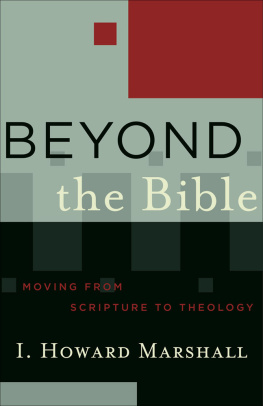
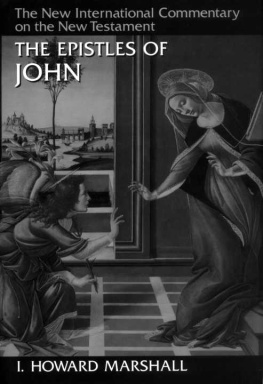
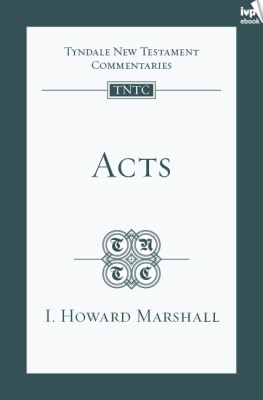
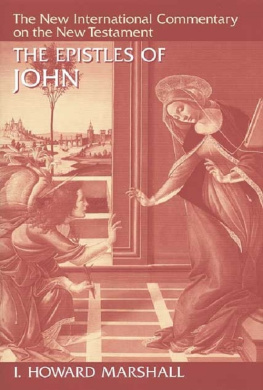

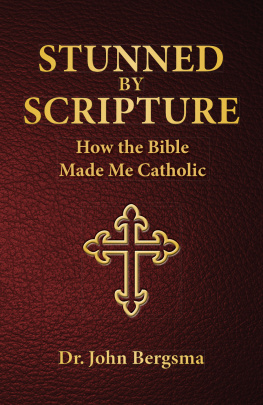
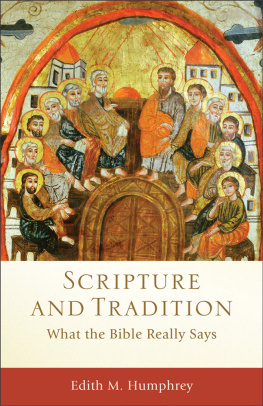
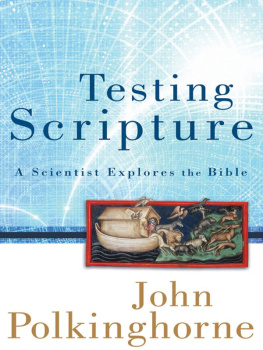
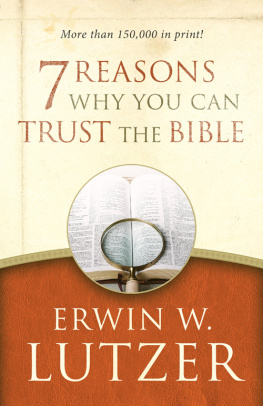
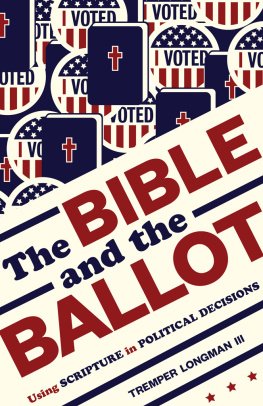
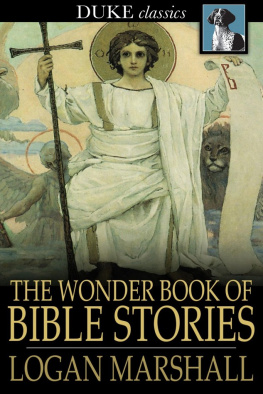
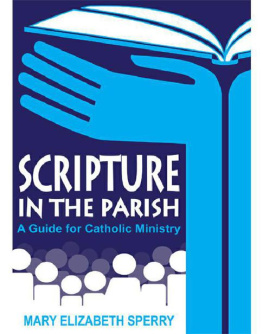
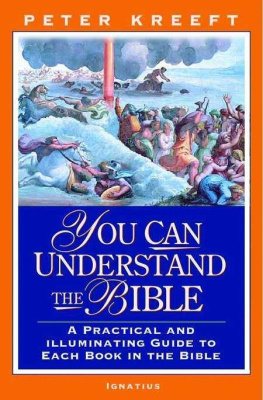
![Scott Hahn [Inconnu(e)] - Scripture Matters: Essays on Reading the Bible From the Heart of the Church](/uploads/posts/book/134760/thumbs/scott-hahn-inconnu-e-scripture-matters-essays.jpg)

